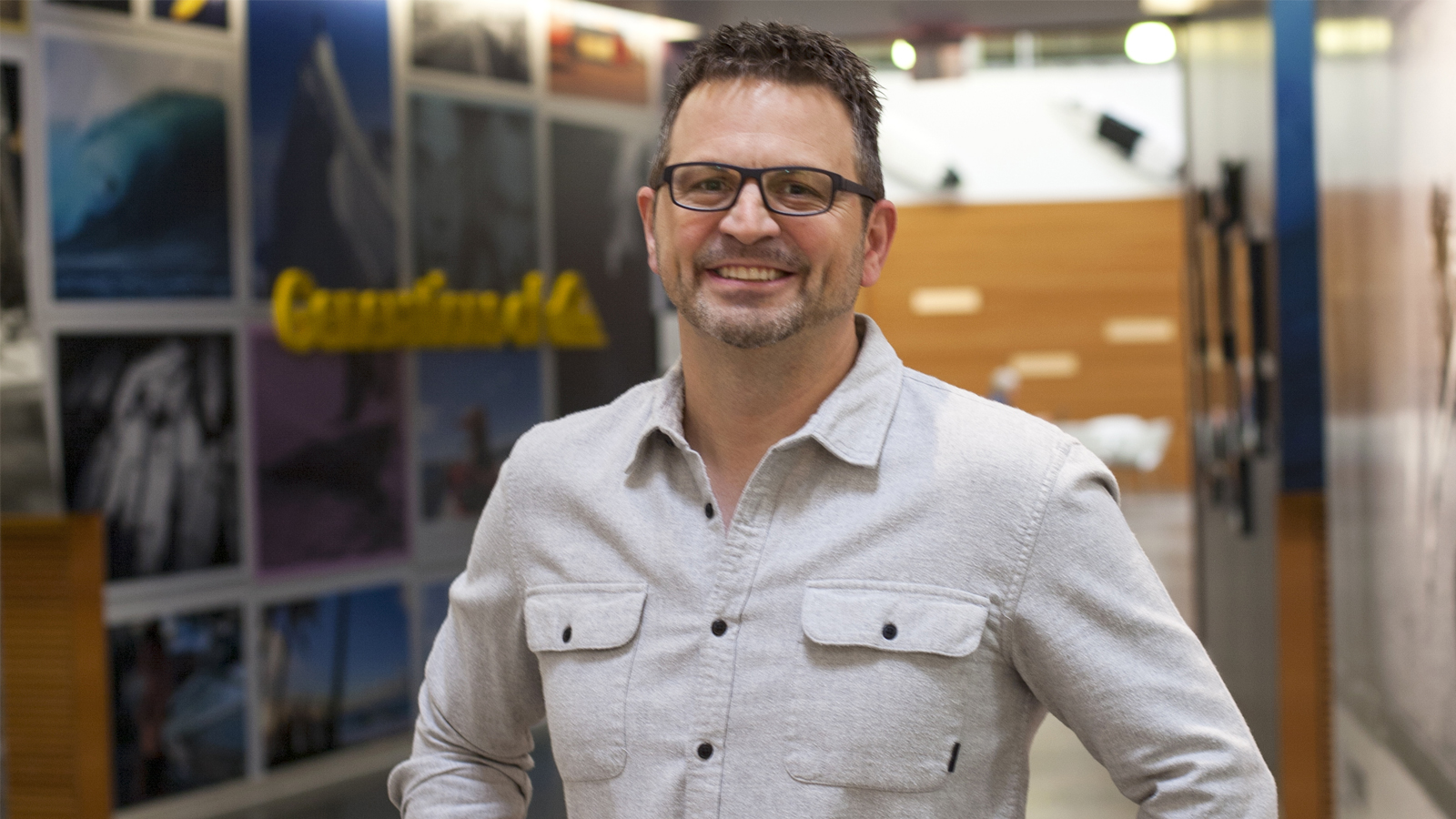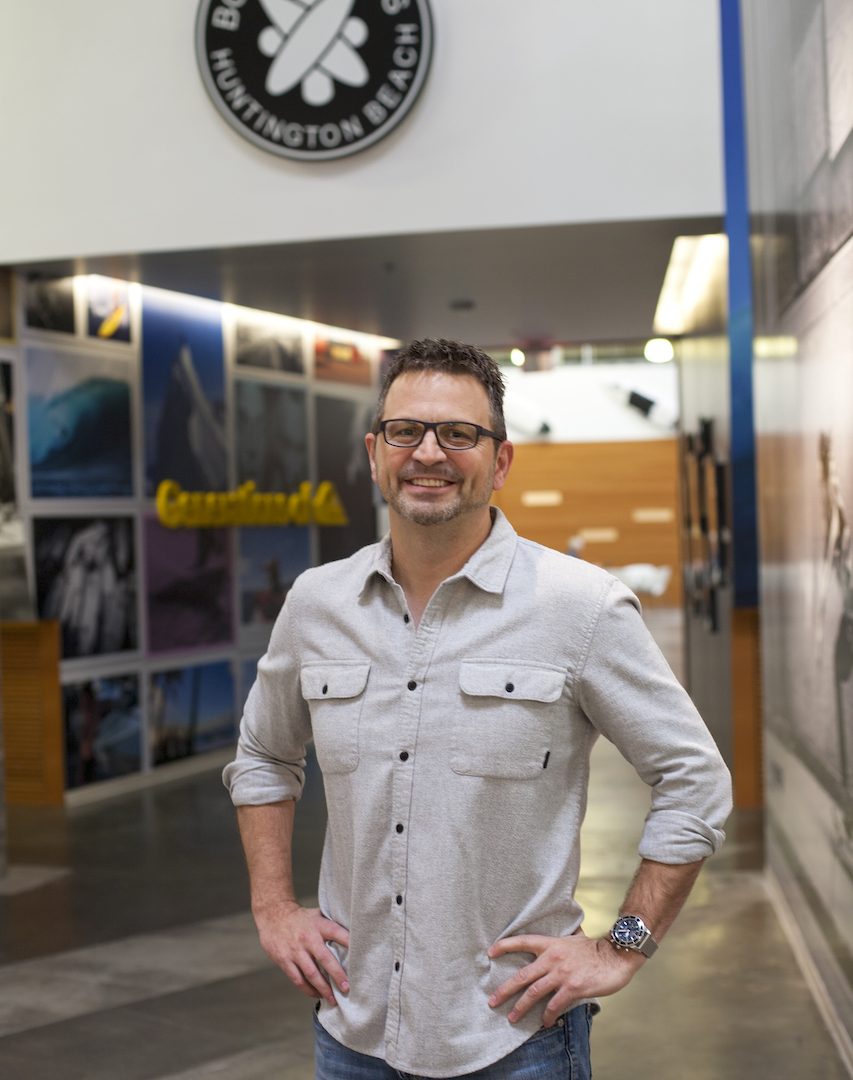
Boardriders CEO Discusses Coronavirus Impact On Boardsports Industry
Boardriders released a statement on Friday April 3, announcing their coronavirus action plan and SOURCE reached out to company CEO, David Tanner for comment on the news. As CEO of the company home to Quiksilver, Billabong, Roxy, DC, RVCA, Element and VonZipper we picked David’s brain about the ways in which the pandemic is affecting our business.

David Tanner. CEO Boardriders. Photo courtesy Boardriders
TRENDS
Collaboration Is Key
We asked David his thoughts on how the industry could work together to overcome some of the issues being faced. “I think we’ll have to work together when it comes to collectively addressing the inventory problems that will exist out there as a result of this and also when it comes to collectively sharing financial risk with payment terms and cancellations. We’ll also need to work collectively on what that future consumer’s going to want and need versus what they did four weeks ago, because I believe they’re going to be very different.”
Boardriders are already working with their partners on the above issues with different customers, different vendors, factories and marketing partners.
Digitalisation
As I’m sure many will have noticed, the majority of newsletters from trusted online sellers are rife with deals on leisurewear, with people spending all day at home, and David confirms the trend – essentials are also trending at Boardriders and he says that’s a strength they’ll be looking to play to with the narrowing of future lines.
David sees things continuing to accelerate towards digital, however says “our DTC businesses have been doing great around the world, but at the same time there’s obviously bigger issues for the entire continent.”
Remote Working
David explained that while he’s sure working from home differs depending on the individual, company or industry, at Boardriders they’re not convinced it’s a trend here to stay: “What I’m hearing out of our teams around the world is that it won’t lead to a permanent shift where people are just remote working all the time. I think people miss human interaction. And while we can all be functional during this period working from anywhere, I don’t think it’s a sustainable thing. I think you lose the energy in organizations. I think you lose some of the creativity and humans are actually social creatures.”
Supply Chain & Localisation
Talking about how David thinks COVID-19 could impact the way Boardriders and other companies look at their supply chain, he says: “I think it’s going to lead to the reconfiguration of supply chains, thanks to tariff wars and rolling coronavirus issues impacting supply chains in Asia and around the world. This could mean that the assumptions made historically on where you would get your product and where you would want to get your product might not hold.”
So we asked David if he believes there will be a shift to more demand for localisation. “I think there will and should be, but the problem is someone has to invest in it. I’d love to produce everything more locally, closer to region, more speed to market and have the jobs in the regions we’re selling. The problem is the factories in those facilities don’t actually exist in most places, so there’s no place to put it. Fast forwarding to what the world looks like on the other side of this, I think there’s going to be even more scrutiny around investment capital that goes into these kinds of things. And so financiers who finance a new factory or a new operation are going to probably have more scrutiny with their capital and where they’re investing.”
Personnel
David said Boardriders are working with different regions according to the fiscal help being offered by governments to their employees, factories and warehouses. Expanding, David spoke of their European operations: “With all the European retail stores closed, the social programs and technical leave programs in places like France and Spain are great. So those employees are getting put into technical leave programs so they’re still getting paycheques.” Elsewhere globally they are implementing selective furloughs as well as pay cuts for staff members including himself to “help all of us collectively get through this together.”
Asian Market – Supply & Demand
Looking east and to Asia, we asked David for insight on the market over there where places like China and South Korea have now lifted lockdown with many manufacturers back in operation. Looking at the consumer and commerce perspective, David confirms that Asia is largely open for business albeit at “muted” rates and comps. He says it’s a real moving feast with the constantly evolving changes to restrictions in, for example, Japan about to declare a state of emergency, New Zealand in total lockdown and Australia trying to keep things open.
While we walked the trade shows back in January the coronavirus was in relative infancy and the western world was concerned for the supply side of the business and how this would be affected. However with China now up and running, here at SOURCE we’re hearing a demand issue is now on the cards (stay tuned for a feature on disruptions to the boardsports manufacturing industry). David also notes the rolling factory closures elsewhere in Asia with India, Bangladesh and Pakistan all now closed. Apparel companies are now dialling down future plans and lines to adapt to the environment, providing these newly re-opened Chinese factories with a demand problem.
“I don’t think this is a V shape recovery situation.”
The Future
“On a positive note, how I think about this internally is people, the human race is going to get to the other side of this and is going to adapt just as it always has. And commerce and boardsport activity will continue. But until that point, we’re working really hard on just making sure that we limit the damage to our company, that we come out the other side and can figure the right way.”




